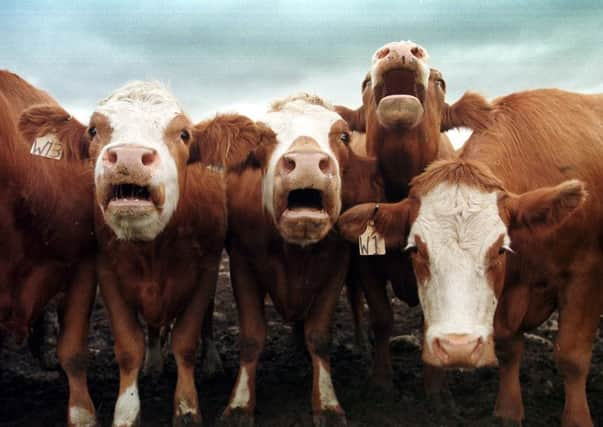Lower availability and lighter carcases push up prices
This article contains affiliate links. We may earn a small commission on items purchased through this article, but that does not affect our editorial judgement.


The organisation’s head of economics, Stuart Ashworth, said prices were being supported by the lower availability of prime cattle in Scotland compared with last year, together with lower carcase weights.
• READ MORE: Farming news
Ashworth said that the move by abattoirs to “encourage” lighter carcases had resulted in earlier marketing of mainly male cattle.
Advertisement
Hide AdAdvertisement
Hide Ad“Latest estimates show a decline in the carcase weight of steers between March and April, a time when historically carcase weights increase.
“Average steer carcase weights during April in Scotland were reported as 387kg, 10kg lighter than last year and 4kg lighter than March. Heifers produced carcases 3kg lighter than last year during April.”
He said that in contrast, abattoirs in England and Wales, which had seen lower stock availability in the first quarter of 2017, were now seeing more plentiful supplies. However, he said this slight increase in supply in England had not hit the market – with prices there also running 12 per cent higher than last year.
Ashworth said that census and BCMS figures suggested that this scenario of tighter male cattle supplies alongside stable heifer supplies within Scotland was likely to continue through the summer.
He added that the fall in sterling since last year had reduced the attractiveness of imported beef, resulting in lower volumes of Irish beef on the UK market.